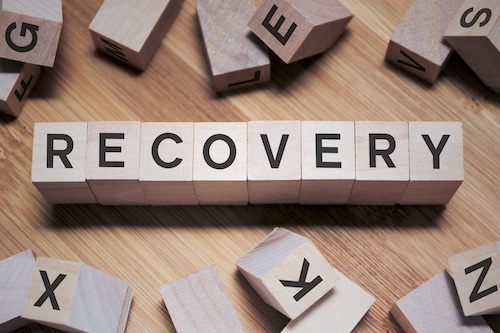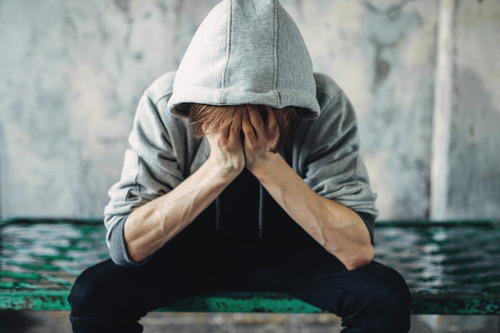Anxiety and Depression During Recovery
At Carolina Recovery, we provide comprehensive care for people facing anxiety, depression, and addiction. Our Durham recovery center offers therapy, medication management, and personalized treatment plans guided by experienced mental health professionals. We focus on helping each person reduce symptoms, strengthen coping strategies, and build lasting well being in recovery.
Anxiety and depression often appear during recovery and can make progress feel harder than expected. These mental health conditions may bring ongoing feelings of worry, sadness, or fear, along with physical symptoms like muscle tension and changes in sleep patterns. Without the right treatment options, anxiety and depression symptoms can interfere with daily life and increase the risk of relapse.
At Carolina Recovery’s Durham recovery center, treatment plans focus on managing these mental disorders with therapy, medication, and lifestyle changes that help people build long-term well-being.
Understanding Anxiety and Depression in Recovery
Anxiety and depression are two of the most common mental health conditions people face during recovery. Recognizing how they affect daily life is the first step toward finding effective treatments.
What Anxiety and Depression Mean in Recovery
Anxiety and depression are classified as mental disorders in the Diagnostic and Statistical Manual of Mental Disorders published by the American Psychiatric Association. Anxiety disorders include generalized anxiety disorder, panic disorder, social anxiety disorder, and separation anxiety disorder. Depressive disorders include major depressive disorder and other forms of persistent sadness. Both can appear during recovery and can increase the risk of relapse.
How Symptoms Show Up
Anxiety symptoms may include muscle tension, difficulty concentrating, worry in stressful situations, or sleep problems such as trouble staying asleep. Depression symptoms often involve feeling sad, losing interest in activities, changes in appetite, fatigue, or negative thoughts. These physical signs and emotional changes can make daily life harder for adults working through recovery.
Why Recovery Triggers Mental Health Conditions
During recovery, the brain adjusts to life without alcohol or recreational drugs. This adjustment can lead to ongoing feelings of fear, sadness, or worry. People may experience changes in sleep patterns, increased stress, and difficulty managing relationships. Without the right treatment, depression and anxiety symptoms can get worse.
The Role of Diagnosis and Treatment
A correct diagnosis from a mental health provider is key to building a treatment plan. Talk therapy, medication such as antidepressants, and lifestyle changes like regular exercise and enough sleep help reduce symptoms. With effective treatments, most people can reduce anxiety, ease depression, and improve well-being during recovery.
Recognizing Symptoms and Warning Signs
Identifying the symptoms of anxiety and depression early helps people seek the right treatment and support.
Common Anxiety Symptoms
Anxiety disorders often show up with physical symptoms and emotional stress. Signs may include muscle tension, restlessness, increased heart rate, or sweating. People may also report ongoing worry, difficulty concentrating, or intense fear in stressful situations. Changes in sleep patterns, such as trouble falling or staying asleep, are also frequent.
Common Depression Symptoms
Depressive disorders such as major depressive disorder often present with sadness that does not go away. Other depression symptoms include fatigue, negative thoughts, changes in appetite, and difficulty maintaining daily routines. People may feel hopeless, lose interest in relationships, or withdraw from activities that once brought enjoyment.
Overlap of Anxiety and Depression Symptoms
Many people experience both anxiety and depression symptoms at the same time. This overlap can include irritability, trouble focusing, changes in sleep, and physical signs like headaches or stomach discomfort. Ongoing anxiety and ongoing feelings of sadness often make recovery more difficult if not addressed by a mental health professional.
When Symptoms Worsen
Symptoms may worsen without treatment. Depression worse after recovery milestones or relapse risks tied to high stress are common. People may turn to alcohol or recreational drugs as a way to cope, increasing the chance of relapse and suicide risk. Recognizing these warning signs and seeking a treatment plan from a mental health provider is essential for long-term well-being.
Why Recovery Triggers Anxiety and Depression
Recovery can create new stress and expose underlying mental health conditions that were hidden by substance use.
The Link Between Substance Use and Mental Health
Substance use often masks mental disorders such as generalized anxiety disorder or major depressive disorder. When alcohol or recreational drugs are removed, the underlying anxiety and depression symptoms become clearer. This can increase the risk of relapse if left untreated.
Changes in Brain Chemistry
During recovery, the brain works to adjust without substances. This shift can lead to chemical imbalances that cause depression symptoms and anxiety symptoms. Many people feel ongoing anxiety, difficulty concentrating, or negative thoughts during this stage. These physical signs are a natural part of the healing process but require professional support.
Stress in Daily Life After Treatment
Recovery brings stressful situations like repairing relationships, finding work, and rebuilding routines. People may feel overwhelmed by increased responsibility and intense fear of failure. These pressures can make depression worse and increase ongoing feelings of stress and worry.
Loss of Old Coping Mechanisms
Before treatment, many adults used alcohol or drugs to escape negative thoughts or reduce stress. Without those substances, the same people may struggle with separation anxiety, social anxiety disorder, or panic disorder. Building healthier coping strategies with a mental health provider is critical for long-term well-being.
The Role of Fear and Uncertainty
Recovery often comes with fear of relapse, worry about the future, and uncertainty about maintaining progress. These emotional challenges can create ongoing symptoms of both anxiety and depression. Support from a mental health professional, regular exercise, and lifestyle changes like enough sleep help reduce symptoms and stabilize daily life.
Effective Treatments and Coping Strategies
Managing anxiety and depression during recovery requires a treatment plan that combines professional care and daily coping methods.
Therapy as a Core Treatment
Talk therapy is one of the most effective treatments for anxiety and depression. Cognitive behavioral therapy helps people identify negative thoughts and replace them with healthier patterns. Group therapy and a support group allow adults to share experiences and reduce feelings of isolation. A mental health professional can guide therapy sessions and track progress.
Medication Options
Antidepressants and anti-anxiety medications are often used to treat mental health conditions. A mental health provider can decide whether medication is necessary after a diagnosis. Medication may reduce anxiety symptoms, depression symptoms, and help stabilize sleep patterns. Combining medication with therapy gives most people better results than either treatment alone.
Lifestyle Changes That Reduce Symptoms
Lifestyle changes play a key role in recovery. Regular exercise reduces stress and improves well-being. Getting enough sleep and staying asleep improves focus and lowers fatigue. Balanced meals and avoiding alcohol or recreational drugs also reduce symptoms. People benefit from spending time outdoors, practicing relaxation exercises, and maintaining healthy relationships.
Stress Management in Daily Life
Coping strategies are important for managing stressful situations. Deep breathing, mindfulness, and journaling help reduce anxiety. Simple routines such as scheduling daily tasks and limiting screen time before bed improve sleep patterns. Adults in recovery who practice stress management are less likely to experience ongoing feelings of worry or depression.
Building Long-Term Support
Recovery is stronger when people stay connected to a treatment provider and support group. Ongoing therapy, regular check-ins with a mental health professional, and contact with peers in recovery all reduce the chance of depression worse over time. Structured coping strategies give people confidence to manage daily life and reduce the risk of relapse.
Building a Long-Term Treatment Plan
A long-term treatment plan helps people manage anxiety and depression while supporting lasting recovery.
Role of a Mental Health Provider
A mental health provider creates a structured treatment plan after a full diagnosis. The plan may include therapy, medication, and coping strategies that address both anxiety disorders and depressive disorders. Ongoing support ensures symptoms are monitored and treatment options are adjusted as needed.
Personalized Care for Mental Health Conditions
Every person responds differently to treatment. Some benefit from antidepressants, while others improve through talk therapy or lifestyle changes. A personalized plan allows a mental health professional to match effective treatments to each person’s anxiety and depression symptoms.
Identifying Triggers and Stressful Situations
Recovery requires awareness of personal triggers. Stressful situations, unhealthy relationships, or exposure to alcohol can increase the risk of relapse. Recognizing these risks helps reduce anxiety and negative thoughts. A plan should include practical coping strategies to manage fear and stress in daily life.
Incorporating Healthy Habits
Lifestyle changes are essential in long-term care. Regular exercise, balanced nutrition, and enough sleep support physical health and reduce symptoms. People benefit from spending time in supportive environments and practicing methods that reduce stress. These habits strengthen well-being and improve resilience against mental disorders.
Ongoing Support and Monitoring
A strong plan includes follow-up appointments with a mental health professional and regular participation in a support group. Continued care ensures that depression symptoms and anxiety symptoms are managed before they worsen. Structured monitoring makes recovery sustainable and reduces the chance of relapse.
Start Treatment for Anxiety and Depression Today!
If you or someone you love is struggling with anxiety and depression during recovery, our team at Carolina Recovery in Durham is here to help. We provide effective treatments, supportive therapy, and long-term strategies that improve daily life and reduce symptoms.
Schedule an appointment with us at (812) 408-8842 today!







